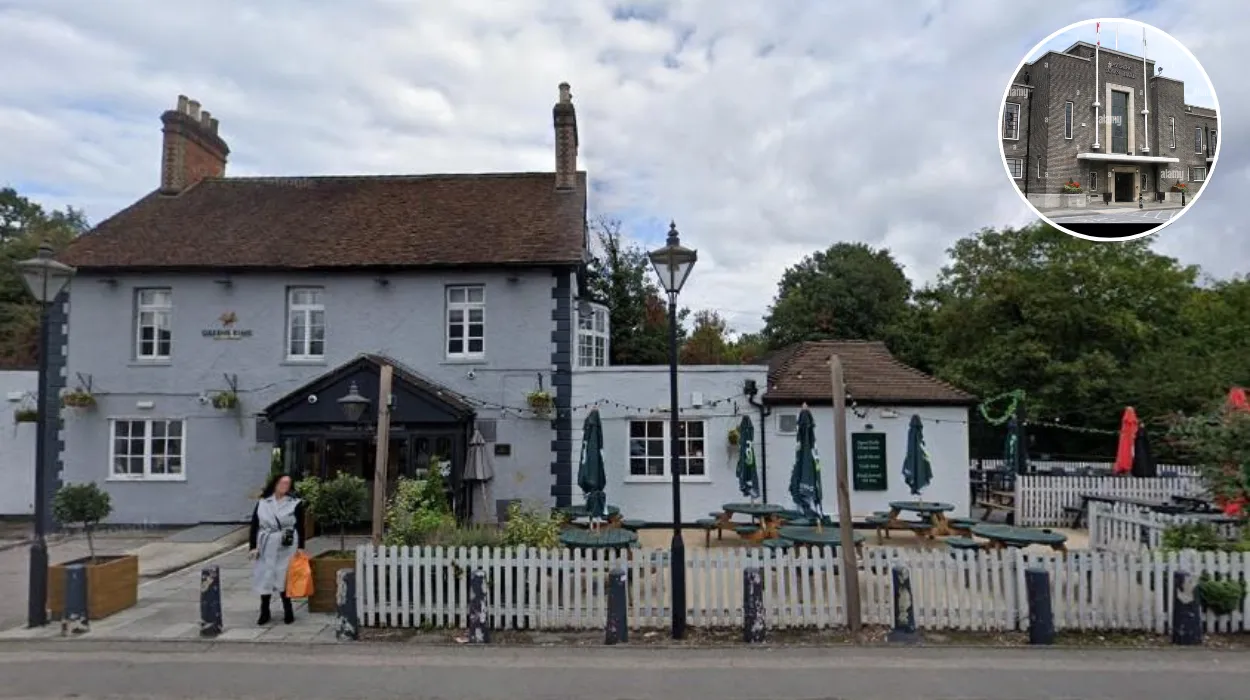Key Points
- What Are the Latest Food Hygiene Ratings in Havering?
- How Does the Food Hygiene Inspection Process Work?
- What Rights Do Food Businesses Have Regarding Their Ratings?
- What Is the Havering Food Alliance and How Does It Address Food Insecurity?
- How Is Havering Council Tackling Food Waste and Promoting Sustainability?
- Where Can Residents Find Out More or Get Involved?
- What Are the Implications for Public Health and Community Well-Being?
- Latest food hygiene ratings for Havering, including The Windmill pub, released by London Borough of Havering, covering over 2,000 premises.
- Food hygiene inspections are conducted regularly and ratings published under the Food Hygiene Rating Scheme (FHRS).
- Ratings range from 0 (urgent improvement necessary) to 5 (excellent), with recent inspection data imported as of 16 January 2025.
- The Windmill pub and other local establishments have been assessed for compliance with food safety standards.
- New initiatives such as the Havering Food Alliance launched to tackle food insecurity and promote sustainable food systems.
- Havering Council to introduce a separate household food waste collection service by October 2025, in line with government mandate for all local authorities by March 2026.
- Public consultations and community events held to inform and involve residents in food safety and waste reduction strategies.
- Residents and businesses can appeal ratings, request revisits, and participate in shaping food policy.
- Food safety inspections focus on hygiene, risk management, staff training, and premises condition.
In a comprehensive effort to ensure public health and food safety, the London Borough of Havering has published its latest food hygiene ratings for over 2,000 food premises, including the well-known Windmill pub. Alongside these regular inspections, the borough is advancing new strategies to combat food insecurity and reduce waste, reflecting a broader commitment to community well-being and sustainability.
What Are the Latest Food Hygiene Ratings in Havering?
According to the most recent data imported by the London Borough of Havering on 16 January 2025, food hygiene inspection results are available for 2,081 premises across the borough, encompassing restaurants, cafés, pubs, takeaways, retailers, and care facilities. The Windmill pub, along with other local favourites such as Wrights Faringdon, Hollypops Cakery, and Gusto, has been inspected and rated under the national Food Hygiene Rating Scheme (FHRS).
The FHRS awards ratings from 0 (urgent improvement necessary) to 5 (excellent), which are published both online and on physical stickers displayed at the premises. This system allows residents and visitors to make informed choices about where they eat or shop for food.
How Does the Food Hygiene Inspection Process Work?
As outlined by the London Borough of Havering, all food businesses are subject to regular, unannounced inspections. The frequency of these visits depends on the nature of the business and its risk profile. Higher-risk establishments are inspected more frequently, while those with strong management and good compliance may see less frequent visits.
During inspections, officers assess several key areas:
- Hygienic handling and production of food
- Food safety and risk of contamination
- Staff training in food hygiene practices
- Condition of premises and equipment
- Pest control measures
- Personal hygiene of staff
If issues are identified, officers may offer advice, issue legal notices, or, in severe cases, prosecute or close the business. The aim is always to resolve problems informally where possible, but public health remains the priority.
What Rights Do Food Businesses Have Regarding Their Ratings?
Food businesses in Havering have the right to appeal their hygiene rating within 21 days if they believe it does not accurately reflect their standards at the time of inspection. They can also request a revisit after making improvements, subject to a non-refundable charge and an unannounced follow-up inspection within three months.
Additionally, businesses can exercise a “right to reply,” providing comments or explanations about actions taken to address issues. These comments are reviewed and may be published unless they contain offensive or defamatory content.
What Is the Havering Food Alliance and How Does It Address Food Insecurity?
As reported by The Havering Daily, a significant new initiative—the Havering Food Alliance—was launched in June 2025 to unite charities, businesses, community groups, and public sector partners in tackling food insecurity and building a fairer, healthier, and more sustainable food system.
Councillor Ray Morgon, Leader of Havering Council, emphasised the importance of this partnership:
“As people continue to feel the pinch with higher costs of living – we know many residents are struggling to put food on the table. The Havering Food Alliance is an important step forward in coordinating efforts and working in partnership to make sure no one is left behind. I hope this joined up approach will help support families with access to affordable and healthy food as well as creating a stronger, more resilient food supply system that benefits the whole borough.”
— Councillor Ray Morgon, Leader of Havering Council, as reported by The Havering Daily.
Anthony Lowe, Chief Executive of Tapestry Care UK, highlighted the Alliance’s community impact:
“Tapestry is proud to work alongside Havering Council to strengthen local food support. We’ve helped launch the Havering Food Alliance, a partnership that brings the community together to tackle food insecurity and runs the Rainham Food Pantry, ensuring no one is left without essentials. Beyond providing food, the pantry helps people reduce anxiety, improve budgeting skills, and offers a vital social space for people who might otherwise feel isolated. Together, we’re creating a more joined-up and sustainable approach to supporting residents throughout the year.”
— Anthony Lowe, Tapestry Care UK, via The Havering Daily.
The Rainham Food Pantry, a cornerstone of the Alliance, has received positive feedback for its affordability and community spirit. Plans are underway to expand with a second pantry in Rainham and trial social supermarkets in Harold Hill and Hornchurch, contingent on securing more surplus and donated food from local producers and charities.
How Is Havering Council Tackling Food Waste and Promoting Sustainability?
In response to a government mandate requiring all local authorities to provide separate household food waste collection by March 2026, Havering Council has announced plans to roll out this service by October 2025. The council conducted a public consultation from October to November 2024 to gather residents’ views on collecting, separating, and presenting food waste, shaping the strategy for the new service.
The council’s Cabinet met in January 2025 to approve the purchase of food waste caddies and vehicles, with a focus on clear messaging and addressing residents’ concerns during the rollout. The initiative is part of a broader campaign to reduce landfill, cut carbon emissions, and encourage home composting and waste reduction.
“Havering’s ‘Love Food, Hate Waste’ campaign has reached out to hundreds of residents over the years, helping them to save money and reduce their food waste by smart shopping, suitable storage and using up leftovers. Where this is not possible, recycling food waste is a simple way for residents to reduce landfill and do something positive in the community towards climate change and reducing our carbon footprint.”
— Havering Council strategy document.
Where Can Residents Find Out More or Get Involved?
Residents and organisations seeking support or wishing to contribute to the Havering Food Alliance can visit the official website or contact Tapestry Care UK via email. Those needing help with the cost of living can access resources through the Havering Helps webpage or by contacting the council directly.
For information on food hygiene ratings, appeals, and inspections, residents and businesses can consult the council’s official website or use the national Food Standards Agency platform to view ratings and inspection details.
What Are the Implications for Public Health and Community Well-Being?
The combined efforts of regular food hygiene inspections, the launch of the Havering Food Alliance, and the introduction of separate food waste collections reflect a holistic approach to public health, food security, and environmental sustainability in the borough. By maintaining high standards, supporting vulnerable residents, and involving the community in policy development, Havering is setting a benchmark for proactive local governance.
As the borough continues to adapt to changing regulations and community needs, transparency in food safety ratings and collaborative initiatives will remain central to ensuring that all residents have access to safe, affordable, and nutritious food.



